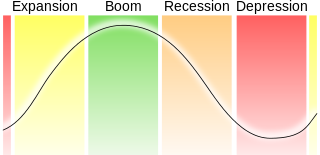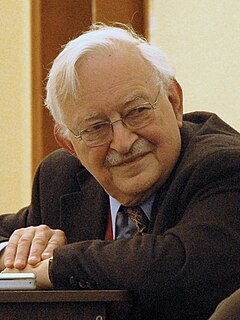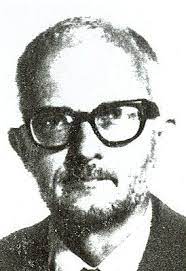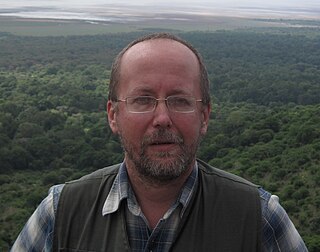
In economics, Kondratiev waves are hypothesized cycle-like phenomena in the modern world economy. The phenomenon is closely connected with the technology life cycle.
Political science is the scientific study of politics. It is a social science dealing with systems of governance and power, and the analysis of political activities, political thought, political behavior, and associated constitutions and laws.

Askar Akayevich Akayev is a Kyrgyz politician who served as President of Kyrgyzstan from 1990 until being overthrown in the March 2005 Tulip Revolution.

Immanuel Maurice Wallerstein was an American sociologist and economic historian. He is perhaps best known for his development of the general approach in sociology which led to the emergence of his world-systems approach. He was a Senior Research Scholar at Yale University from 2000 until his death in 2019, and published bimonthly syndicated commentaries through Agence Global on world affairs from October 1998 to July 2019.

Nikolai Dmitriyevich Kondratiev was a Russian Soviet economist and proponent of the New Economic Policy (NEP) best known for the business cycle theory known as Kondratiev waves.
Dependency theory is of the notion that resources flow from a "periphery" of poor and underdeveloped states to a "core" of wealthy states, enriching the latter at the expense of the former. It is a central contention of dependency theory that poor states are impoverished and rich ones enriched by the way poor states are integrated into the "world system". This theory was officially developed in the late 1960s following World War II, as scholars searched for the root issue in the lack of development in Latin America.

Raúl Prebisch was an Argentine economist known for his contributions to structuralist economics such as the Prebisch–Singer hypothesis, which formed the basis of economic dependency theory. He became the executive director of the Economic Commission for Latin America in 1950. In 1950, he also released the very influential study The Economic Development of Latin America and its Principal Problems.
Andre Gunder Frank was a German-American sociologist and economic historian who promoted dependency theory after 1970 and world-systems theory after 1984. He employed some Marxian concepts on political economy, but rejected Marx's stages of history, and economic history generally.

World-systems theory is a multidisciplinary approach to world history and social change which emphasizes the world-system as the primary unit of social analysis.

MENA, an acronym in the English language, refers to a grouping of countries situated in and around the Middle East and North Africa. It is also known as WANA, which alternatively refers to the Middle East as Western Asia. As a regional identifier, MENA is often used in academia, military planning, disaster relief, media planning, and business writing. Moreover, the region shares a number of cultural, economic, and environmental similarities across its comprising countries; for example, some of the most extreme impacts of climate change will be felt in MENA.

Samir Amin was an Egyptian-French Marxian economist, political scientist and world-systems analyst. He is noted for his introduction of the term Eurocentrism in 1988 and considered a pioneer of Dependency Theory.
Unequal exchange is used primarily in Marxist economics, but also in ecological economics, to denote forms of exploitation hidden in or underwriting trade. Originating, in the wake of the debate on the Singer–Prebisch thesis, as an explanation of the falling terms of trade for underdeveloped countries, the concept was coined in 1962 by the Greco-French economist Arghiri Emmanuel to denote an exchange taking place where the rate of profit has been internationally equalised, but wage-levels have not. It has since acquired a variety of meanings, often linked to other or older traditions which perhaps then raise claims to priority.
The flying geese paradigm is a view of Japanese scholars regarding technological development in Southeast Asia which sees Japan as a leading power. It was developed in the 1930s, but gained wider popularity in the 1960s, after its author, Kaname Akamatsu, published his ideas in the Journal of Developing Economies.

George Modelski was Professor Emeritus of political science in the University of Washington. Modelski was a professor there from 1967 to 1995.

Andrey Vitalievich Korotayev is a Russian anthropologist, economic historian, comparative political scientist, demographer and sociologist, with major contributions to world-systems theory, cross-cultural studies, Near Eastern history, Big History, and mathematical modelling of social and economic macrodynamics.
Leonid Efimovich Grinin is a Russian philosopher of history, sociologist, political anthropologist, economist, and futurologist.

Nova Science Publishers is an academic publisher of books, encyclopedias, handbooks, e-books and journals, based in Hauppauge, New York. It was founded in 1985. A prolific publisher of books, Nova has received criticism from librarians for not always subjecting its publications to academic peer review and for republishing public domain book chapters and freely-accessible government publications at high prices.
Tessaleno Campos Devezas is a Brazilian-born Portuguese physicist, systems theorist, and materials scientist. He is best known for his contributions to the long waves theory in socioeconomic development, technological evolution, energy systems as well as world system analysis.

The following outline is provided as an overview of and topical guide to the broad, interdisciplinary subject of globalization:
Peter Herrmann is a social philosopher, sociologist and academic of German origin. Between 1995 and 2013 he worked in Ireland where he occupied at the end the position of a senior research fellow at University College Cork, School of Applied Social Studies. 2013 he moved to Rome, Italy, where he worked independently, but in close connection with the Italian research institute EURISPES. From 2015 to 2017 he worked as Professor for Economics at Bangor College of Central South University of Forestry & Technology, ChangSha, PRC, and as Senior Foreign Expert. School of Public Affairs, Dept. of Social Security and Risk Management, Zhejiang University, HangZhou, P.R.China. In September 2017 he commenced a one-year research position at the Max Planck Institute for Social Law and Social Policy in Munich, Bavaria, from where he changed in October 2018 to the Faculty of Economics and Sociology at the University of Lodz in Poland. Since October 2019 he is Research Fellow at the Human Rights Centre. Law School at Central South University, Changsha, PRC.











